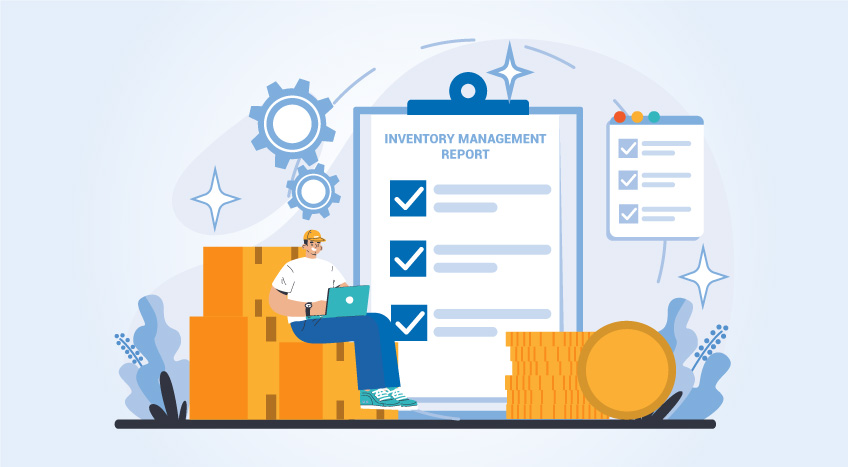- What Is Included in Operating Expenses?
- What Does an Increase in Operating Expenses Mean?
- How to Manage Operating Expenses?
- What is Operating Expense Ratio?
- Are Wages Operating Expenses?
- Manage And Trim Operating Expenses With Ease
Accounting is one of the most important facets of running a business. When you understand accounting terms, it makes it so much easier to get a grip on the financial aspects of running your business. One of the most important terms used in accounting is operating expenses. The daily operations of the business incur an expense that is called the operating expense. It is sometimes referred to as OPEX. The operating expense does not include the expenses incurred by the organization for expenses that are unrelated to its core operations. When the business operates to earn profits, it is permitted to deduct the operating expense as per the regulations of the IRS.
What Is Included in Operating Expenses?
An operating expense is an expense that is incurred to sustain the daily operations of the organization. This does not include any expense that is not related to the core operations. Operating expenses include rent, utilities, inventory cost, payroll, employee benefits, equipment, legal fees, stationery expenses, insurance, pension, advertising and marketing. If the business that you run is web-based, then web hosting would also be an operating cost. It is not possible to run a business without incurring the cost of running it. The operating expense varies between industries.
You must be careful to understand that operating expenses do not include capital expenses or non-operating expenses. Capital expenses are the expenses that the organization invests in. This could be an equipment upgrade. You can write off operating expenses within the year in which the expense was incurred. But capital expenses either get capitalized or written off over a longer period. Non-operating costs are the expenses incurred for things that are not a part of sustaining the daily operations. Some examples of non-operating costs are amortization and depreciation.
What Does an Increase in Operating Expenses Mean?
An increase in the operating expenses means that the organization is spending more on the daily core activities. When a company faces increasing operating expenses it eats into the profits of the company. Financial managers often pay close attention to what operating expenses of the company are to keep them as low as possible. This is because the other non-operating expenses and capital expenditures are usually fixed. The only expense that the company can try to bring down strategically is the operating expense. Businesses sometimes outsource parts of their operations to reduce operating expenses. Reducing the salary structure offered to new employees and encouraging work from home are also ways to reduce operational expenses.
How to Manage Operating Expenses?
Managing the operating expenses of a company is a very delicate task. It is important to cut all unnecessary expenses and save money wherever possible. The expense cuts should not adversely impact essential operations. The operating expense cuts should be implemented while also sustaining the turnover to improve profit margins. If you make expense cuts in the wrong areas it might impact quality or customer satisfaction. You should be able to constrain costs without affecting the quality and integrity of the company’s operations.
Some tips to keep in mind to manage operating expenses are:
- Identify the fixed and variable operating costs. Some of the fixed operating expenses such as rent cannot be changed. Identify the variable expenses such as utilities and see how you can limit wastage and trim these expenses
- Set budgets for your variable expenses and try to stay within them
- Try and renegotiate with suppliers and vendors to get the lowest rates possible
- Weigh the benefits of doing certain things yourself vs outsourcing for cost savings
- Record and monitor your expenses accurately
- Use technology to help you manage operating expenses. Tally helps you record, list, and study your operating expense outflow instantly at any point in time. Learning how to manage the daily aspects of your accounting may save you the fees of hiring an accountant too often
- Incentivize cost-saving measures where possible so that all employees try their best to comply
- Think about alternatives to sponsorships for publicity. Volunteering your services may be a cheaper way to earn good publicity.
What is Operating Expense Ratio?
The OER or operating expense ratio is often used in real estate. It is the comparison of the cost of operating a property vs the income that it brings in.
| Operating Expense Ratio = Operating Expense/ Revenues |
When the OER is low it indicates that less money is being spent on operating expenses. When comparing two locations of the same company, the OER will be the best way to compare the operating costs of both. The location with a lower OER has tighter control on its operating expenses.
You can also compare your operating expense ratio to your competitors in the same field operating at a similar scale. This will tell you how well you are managing your operating expense costs. OER is also a good measure of how profitable it will be to expand your business or acquire another. A business with a lower OER over a period of time will indicate that it is being managed well.
You should know what are operating expenses to increase the profitability and efficiency of your business. OER is a very important factor to compare different businesses in the same field. It tells you the amount of the business’s income that is being used for the operation and maintenance of it. This could include legal fees, taxes, utilities, advertising, utilities, payroll, repair, maintenance, etc. The lower the OER, the better managed the business is and the more attractive to an investor or buyer.
A high OER will indicate that the business being considered has issues that need to be fixed in order to make it more profitable. The business investor would then study the different items under the operational expenses to determine where more cost control measures are required.
Business investors will also study the OER trends over the years. If the OER has been increasing at a rate higher than the income, it would mean that the investor will sustain more of a loss by holding on to the investment in the long run.
The main disadvantage of OER is that It disregards the business’s debt which would then inflate interest expenses. These two crucial numbers are not accounted for in OER. While monitoring OER trends investors should also compare it with profit and revenue to get a more accurate picture of the business.
Are Wages Operating Expenses?
There are two kinds of wages that a company pays out. The salaries that are paid for the full-time staff of the organization are operational expenses. The payout to staff who draw an hourly wage is also an operational expense. But, if labor has been hired specifically for the production of a product, the money paid out is accounted for under the cost of goods sold and not under operational expenses.
Manage And Trim Operating Expenses With Ease
Using technology well makes accounting so much easier. TallyPrime lets you monitor your operational expenses closely so that you can control them well and make your company more profitable. You can seamlessly create respective ledgers for your operating expenses and track how much you’re spending to create a product/service. Based on these insights, you can make informed decisions that will be beneficial for your business and boost profits in the long run.
Book a free demo of TallyPrime today and improve your business efficiency by 10x.
Explore more Products
Best Accounting Software in USA, Accounting Software for Small Businesses in USA, Factors to Consider before Buying Bookkeeping Software for Your Business in USA, Benefits of Payroll Management Software for Small Businesses in USA, Invoicing And Billing Software in USA That Best Suits Your Business
Read more on Accounting
COGS vs Expenses, What is Revenue Recognition?, Financial Accounting Vs. Managerial Accounting, Real Estate Accounting in US Best Practices and Bonus Tips, Difference Between an Estimate, Quote, Bid, and Proposal, How to Easily Build Great Estimates for Your Projects?
Popular Articles
Differences Between Trial Balance & Balance Sheet, What is the NOPAT Formula?, What is A Pay Stub?, What Are T Accounts?, What is a credit note?, How to Find Gross Profit?, Break Even Point Formula, What is the Gross Margin Formula?, What is the Direct Write Off Method?, What Is Interest Expense?










